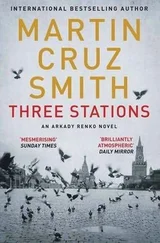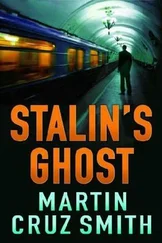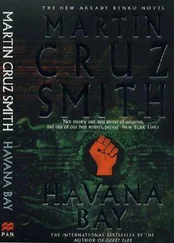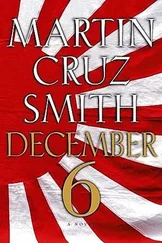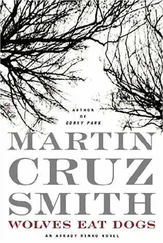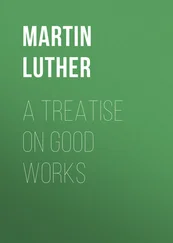Martin Smith - Stallion Gate
Здесь есть возможность читать онлайн «Martin Smith - Stallion Gate» весь текст электронной книги совершенно бесплатно (целиком полную версию без сокращений). В некоторых случаях можно слушать аудио, скачать через торрент в формате fb2 и присутствует краткое содержание. Жанр: Триллер, на английском языке. Описание произведения, (предисловие) а так же отзывы посетителей доступны на портале библиотеки ЛибКат.
- Название:Stallion Gate
- Автор:
- Жанр:
- Год:неизвестен
- ISBN:нет данных
- Рейтинг книги:4 / 5. Голосов: 1
-
Избранное:Добавить в избранное
- Отзывы:
-
Ваша оценка:
- 80
- 1
- 2
- 3
- 4
- 5
Stallion Gate: краткое содержание, описание и аннотация
Предлагаем к чтению аннотацию, описание, краткое содержание или предисловие (зависит от того, что написал сам автор книги «Stallion Gate»). Если вы не нашли необходимую информацию о книге — напишите в комментариях, мы постараемся отыскать её.
Stallion Gate — читать онлайн бесплатно полную книгу (весь текст) целиком
Ниже представлен текст книги, разбитый по страницам. Система сохранения места последней прочитанной страницы, позволяет с удобством читать онлайн бесплатно книгу «Stallion Gate», без необходимости каждый раз заново искать на чём Вы остановились. Поставьте закладку, и сможете в любой момент перейти на страницу, на которой закончили чтение.
Интервал:
Закладка:
A new touch were the patriotic blue armbands with gold Vs for victory on all the dancers. One man had also come out wearing sunglasses. A clown stole the glasses, slipped them on another clown as the drumming started; deep voices lifted and the dancers began turning counter-clockwise like a wheel.
"We don't need Captain Augustino and his security apparatus," Oppy told Anna Weiss. "Los Alamos has a much better defence. The Hill isn't a place, it's a time warp. We are the future surrounded by a land and a people that haven't changed in a thousand years. Around us is an invisible moat of time. Anyone from the present, any mere spy, can only reach us by crossing the past. We're protected by the fourth dimension."
They and Joe and the rest of the tourists watched from the broad shadow of the cottonwood on the south side of the plaza. Back from Washington that morning, Oppy had changed to his Western gear: jeans, boots, silver buckle, hat at an angle. Anna wore her jumpsuit and a man's fedora.
"It's perfectly animistic," Oppy said, "an ancient Greek fertility rite, that's what so wonderful about it. The ears of corn, of course, are phallic symbols."
The word from Washington was that Truman's military advisers claimed Trinity was a waste of time, that the bomb was a scientific boondoggle, a hoax, a dud. Oppy put on a brave front.
"You're not going to dance?" Anna asked Joe. So far, she was no more than civil to him, as if they'd hardly met.
"No."
"Joe's different," Oppy said. "He's a progressive Indian. A bebop Indian." Oppy turned to Joe and lowered his voice. "By the way, when we get to Trinity, Groves wants you to patrol for Apaches. That incident in the snow seems to have lodged in his brain. He thinks it takes an Indian to stop an Indian."
It wasn't a major ceremony, not a saint's day or a basket dance, just a dance for late planting, open to the public but unannounced. Maids had told people on the Hill that "something would be happening". Among the hundred OP so spectators, Joe saw Fermi and Teller. Foote sported British Army shorts and a sombrero.
The dancers moved with a step. Half-hop. Turn. There were few young men; most of them were in the service. Grandparents and girls moved happily to the sonorous beat, gently stirring up dust. Hop. Shuffle. The monotony used to drive Joe crazy. A placid merry-go-round of tame Indians and corn. Shuffle. Turn.
"Who are the painted ones?" Anna asked Joe. "Clowns."
"What do they represent to you?"
"Ancient Greeks." The clowns were performing feeble antics inside the dancers' circle. Joe remembered when they were fierce mimics who imitated Navajos, tourists, Catholic priests, when clons were at least the heat in the pueblo milk.
Cottonwood leaves rustled; on the hottest day, a cottonwood could sound like rain. Ladies from Santa Fe, veteran watchers, opened folding chairs. Oppy murmured something that made Anna laugh, and Joe excused himself to take a walk.
Behind a low stone wall and a small graveyard at the west end of the plaza sat the mission of Santiago. The walls were adobe seven feet thick at the base; the church looked like a monolith thirty feet high. A fort, actually, from the days when the Apaches used to raid the Rio Grande Valley. On the roof was a graceful iron cross and a bell, both cast in Spain. The door was always shut during dances.
The graveyard had marked and unmarked mounds, and a scattering of new white crosses for soldiers. Their backs to the plaza, two cowboys sat on tombstones and smoked. They were wiry men in sweat-stained hats. The older was about sixty, with calloused hands and a chickentrack neck. The younger had long blonde hair and wore a vanity shirt like the kind Roy Rogers sang in. The satin had turned to a muddy iridescence and strips of curlicue piping had fallen off.
"Sergeant Joe Pena," Joe said and stuck out his hand. "I never saw cowboys at an Indian dance before."
"I'm Al." The old man gave Joe the briefest possible shake. "This is Billy."
Billy cocked his head, as if that reduced Joe in size. His nose twisted when he smiled.
"Fuck off."
"You can see better over in the plaza," Joe said.
"We've seen Indians before," Billy said. The shirt was shabby, but painfully romantic. No one would wear it unless he'd considered the possibility of an Indian maiden eyeing him in it. Joe wanted to give him every chance.
"Indian Service?" he asked.
"Who says?" Al looked up, pushed back his hat, revealing stringy hairs stuck to damp, untanned forehead.
"You're Service riders," Joe said.
Billy dropped his cigarette and stepped on it. "No one said that."
"It's not hard," Joe said. "Cowboys. Here. But not for the dance and you don't care for Indians. And you smell like sheep shit. That's right, you've been out shooting those Navajo sheep. With that?" He looked at the gun on Al's belt, a rust-speckled Colt -45. "Doing your bit to win the war?"
"Because they let you in the Army -" Billy began. "But this isn't the Navajo reservation," Joe said. "No Navajos here. You're lost."
"Pena." Al stored the name away aloud. "You work on that magic mountain the Army's got."
"I'll show you the road out," Joe offered. Billy stood up. "You don't -"
"By the way, that shirt," Joe said and shook his head. "That shirt looks like shit and spaghetti on a plate."
"I told him," Al said. He slid off the tombstone, stretched and started for the graveyard gate. "Catch you later, Sergeant."
Though Billy looked bewildered and reluctant to leave, he followed the older man. Halfway to the gate he turned to say,
"We got those Navajos, every one."
The tombstone Al had been using for a seat was a weathered slab of marble that said "Miguel Pena, 1895-1935". Dolores had bought the whitest stone in Santa Fe and it shone while she was alive. Billy had been sitting on a smaller, rose marble marker that said "Dolores Reyes Pena, 1899-1944". She bought it along with Mike's in anticipation; there was nothing more exotic to Dolores than a rose. Only lately had Joe started to realize how young his parents were. He picked up the butt Billy had thrown down, field-stripped it and blew the tobacco away.
There was a certain definition, an edge to the dance when Joe returned. One black and white clown had a camera and was taking a picture of Foote. Then aimed it like a gun. The clown in sunglasses pretended to be blind and stumbled with a stick along the front line of the tourists, pinching a skirt here, feeling a blouse there. In the dancers' line, women giggled. Slide. Half-toe. Turn.
A third clown slipped out of the circle. One pillow was tied to the back of his loincloth and another was strapped to his belly. A fur moustache was stuck to his lip, gold stars to his shoulders, and on his head he wore an Army officer's cap with a paper star. Ponderously he walked clockwise to the dancers, so that they passed in review for him. When he added a twitch to the pillow on his ass, the impersonation of General Groves was complete. The other clowns bowed and salaamed. Anna Weiss laughed, but Oppy looked pained.
A Buick four-door drew up in front of the mission. Fuchs was at the wheel and Augustino was with him. Cars weren't allowed that close. When a tribal policeman went to the car and waved it on, a rear window rolled down and Joe saw the Indian Service rider called Al. The car stayed.
The clown in sunglasses produced a small firecracker. Another clown took it, another clown blessed it and a fourth clown put it on the ground and pretended to light it while the clown-Groves raised binoculars to his circled eyes to watch. All the other clowns except the one in sunglasses put their fingers to their ears.
Nothing.
A second match was tried. A third. A fourth.
A dud.
One after another, clowns inspected the firecracker and passed it on until it was with the clown-Groves, who studied it through his binoculars and gave it to the clown in sunglasses, who turned and presented the firecracker to Oppy. The crowd closed in to see. The dancers had never stopped and the singers hadn't ceased their chant, but their eyes were on Oppy, too. Joe had never seen Oppy blush before. The clown in the sunglasses got on his knees and begged.
Читать дальшеИнтервал:
Закладка:
Похожие книги на «Stallion Gate»
Представляем Вашему вниманию похожие книги на «Stallion Gate» списком для выбора. Мы отобрали схожую по названию и смыслу литературу в надежде предоставить читателям больше вариантов отыскать новые, интересные, ещё непрочитанные произведения.
Обсуждение, отзывы о книге «Stallion Gate» и просто собственные мнения читателей. Оставьте ваши комментарии, напишите, что Вы думаете о произведении, его смысле или главных героях. Укажите что конкретно понравилось, а что нет, и почему Вы так считаете.


